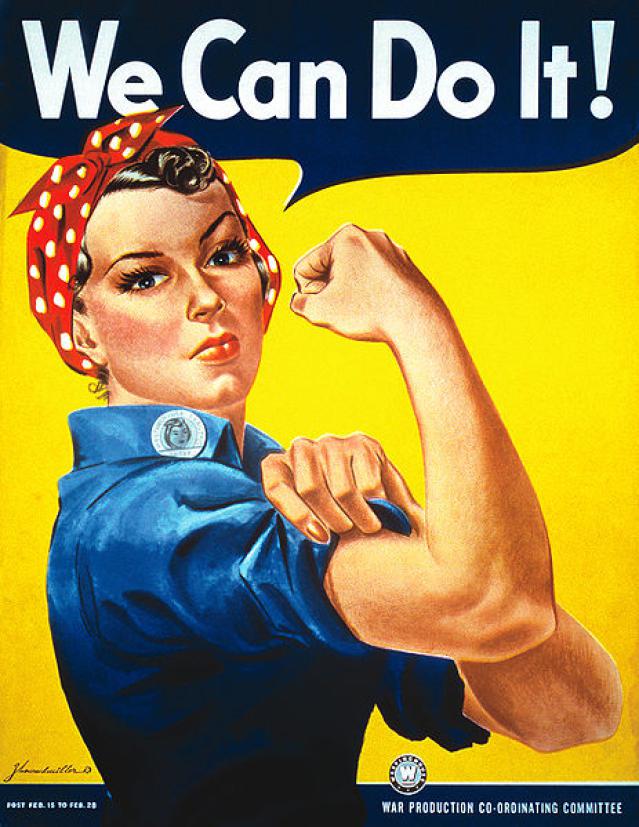Women in War Jobs – Rosie the Riveter (1942-1945)
The War Advertising Council’s Women in War Jobs campaign is the most successful advertising recruitment campaign in American history. Rosie the Riveter, a fictional character immortalized by posters supporting the war effort and a wartime song of the same name, helped to recruit more than two million women into the workforce. Her image graced postage stamps and the cover of Smithsonian magazine and before long Rosie the Riveter became a nickname for women working in wartime industries. In May of 2002, Norman Rockwell’s Rosie the Riveter painting was auctioned by Sotheby’s for nearly $5 million.
In December 1941, almost 13 million women were at work. By February 1943, that number rose to 15 million, but there was a need for two million more women by early 1944. The jobs that needed employees were in war production plants and necessary civilian services, as both were essential to support the country. Until this time, millions of American women had never worked outside their homes. The idea of taking any kind of job outside of their homes was a new idea, and like all new ideas, required explanation. This wasn’t the first time women were recruited for jobs in offices and factories. But in 1943, the mandate was not just economic.
The nation’s major magazines devoted their September 1943 covers to portrayals of women in war jobs, creating approximately 125 million advertisements. Womanpower ads, most of which were full pages, were among the interior pages of these magazines. Motion pictures, newspapers, radio, trade press, employee publications, and in-store displays all tied in importantly. Even museums participated, with the Museum of Modern Art in New York conducting a contest for the best magazine covers.
The underlying theme was that the social change required to bring women into the workforce was a patriotic responsibility for women, and an opportunity for employers to support the war economy. Those ads led to a tremendous change in the relationship between women and the workplace. As a result, employment outside of the home became socially acceptable and even desirable.
Print Ad:
Rosie the Riveter







